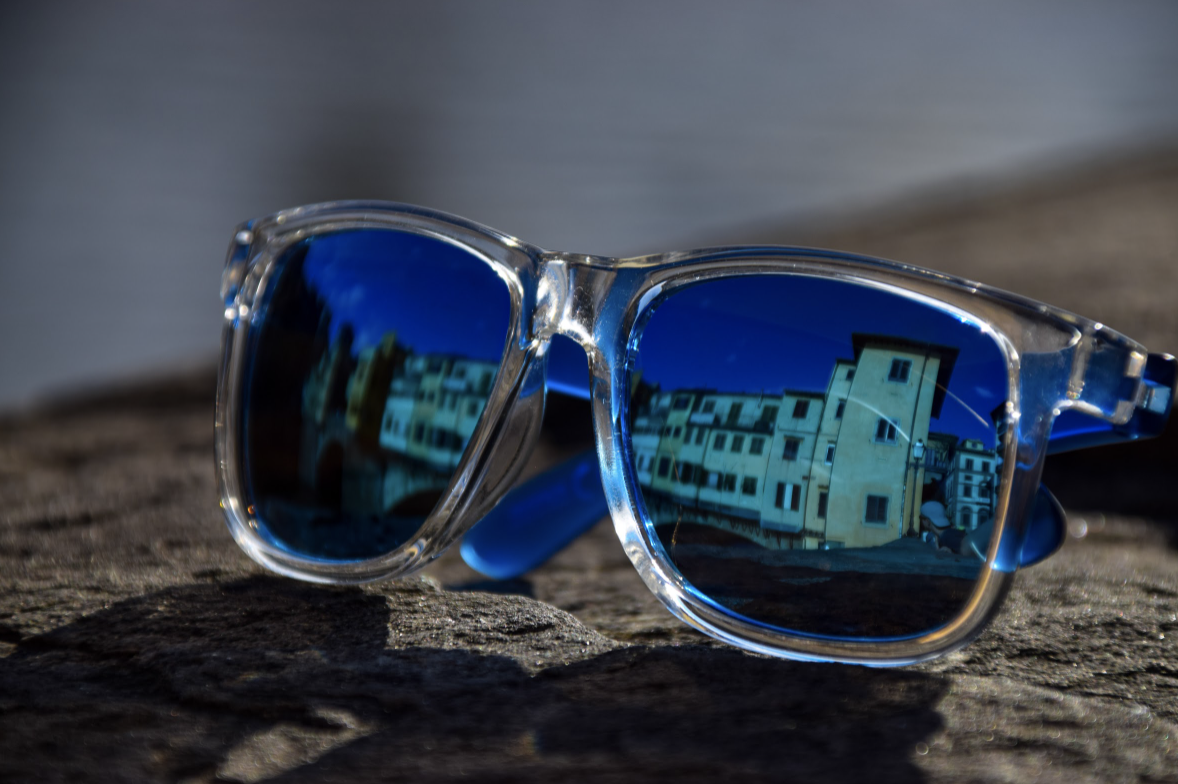 |
| Some evidence that harmful effects that may be related to using blue‐light blocking lenses include headache, increased depressive symptoms, lowered mood and discomfort wearing the glasses. However, similar adverse effects were also reported with non‐blue‐light blocking lenses, and there was not enough data to accurately measure or determine possible harmful effects with certainty. Photo: Joshua Kettle/Unsplash. Click image to enlarge. |
There remains significant debate surrounding whether bluelight filtering or blocking spectacle lenses have merit in ophthalmic practice. These lenses are frequently prescribed (sometimes in preference to standard spectacles lenses) in eye care practice and a range of marketing claims exist surrounding their potential benefits to reduce visual fatigue from digital device use, protect the macula and improve sleep quality. The mechanisms by which these lenses might impart at least some of these effects remains unclear. A recent Cochrane Review investigated the possible advantages and safety of blue‐light filtering spectacle lenses and found that there may be no short‐term advantages with using blue‐light filtering lenses to reduce visual fatigue with computer use, there is limited information about the potential effects of these lenses on visual acuity and the effects on sleep‐related measures are unclear.
The systematic review included 17 studies that recruited 619 people and took place in six countries. Sample sizes ranged from five to 156 participants, and intervention follow-up periods from less than one day to five weeks. A variety of participant characteristics was represented across the studies, such as healthy adults as well as individuals with mental health and sleep disorders.
The researchers judged 65% of the studies to have a high risk of bias due to outcome assessors not being masked (detection bias) and 59% to be at high risk of bias of performance bias as participants and personnel were not masked.
The systematic review found that blue-light filtering spectacle lenses may not reduce symptoms of eye strain with computer use, over a short-term follow-up period, compared with non-blue-light filtering lenses. Further, the researchers found no clinically meaningful difference in changes to critical fusion frequency with blue-light filtering lenses compared with non-blue-light filtering lenses.
Also, potential harmful effects were temporary and generally mild, and mostly thought to be related to the glasses more generally rather than specifically the lenses themselves.
Because none of the included studies investigated contrast sensitivity, color discrimination, discomfort glare, macular health, serum melatonin levels or overall patient visual satisfaction, the review could not draw any conclusions regarding these measures.
“Based on the current best available evidence, there is probably little or no effect of blue-light filtering lenses on BCVA compared with non-blue-light filtering lenses,” the authors of the paper wrote.
“Our ability to draw conclusions about the effect of blue-light filtering spectacle lenses on many of the prespecified secondary outcomes was limited by the available evidence, with most trials not reporting quantitative data, having shorter follow-up periods than the period of interest defined in our systematic review protocol or heterogeneous study populations that limited our capacity for quantitative syntheses,” they added.
“Overall, the results of this review indicate that future high-quality research is required to more clearly define the potential effects of blue-light filtering lenses on visual performance, sleep and macular health, including whether efficacy and safety outcomes are distinct in different study populations,” the study concluded.
Singh S, Keller PR, Busija L, et al. Blue‐light filtering spectacle lenses for visual performance, sleep and macular health in adults. Cochrane Database Syst Rev. 2023;8(8):CD013244. |

